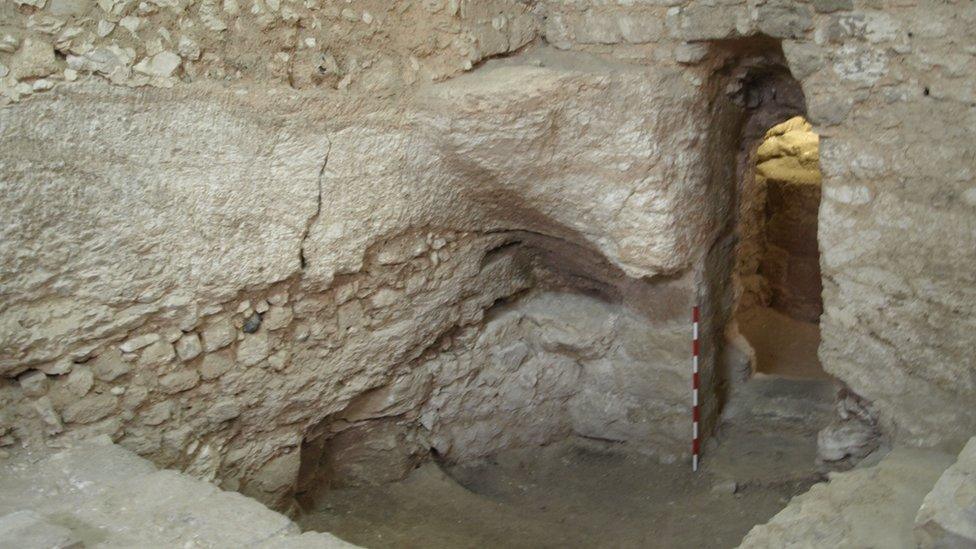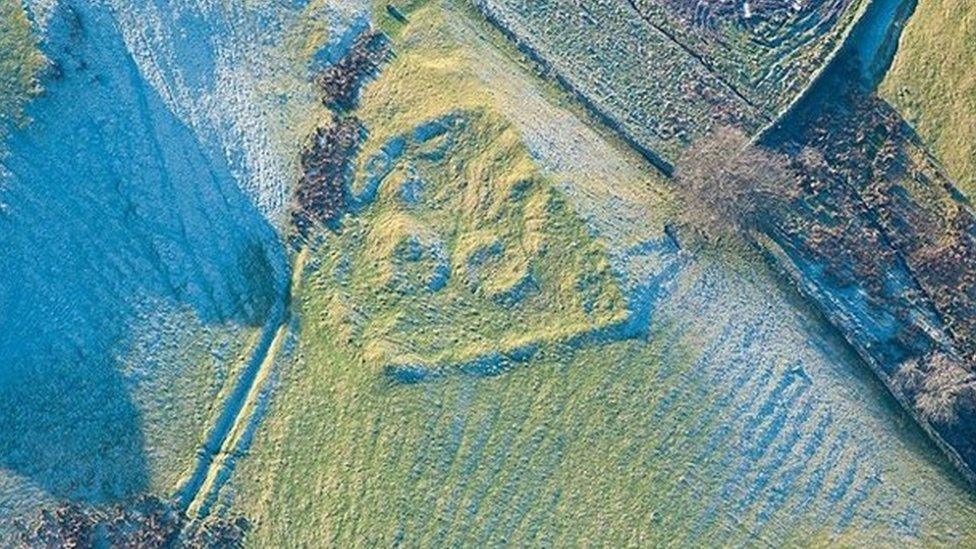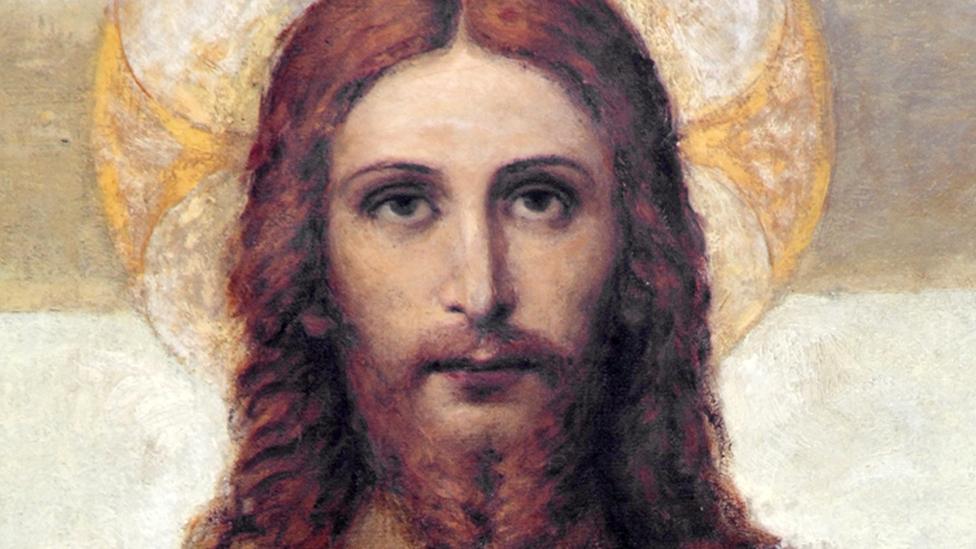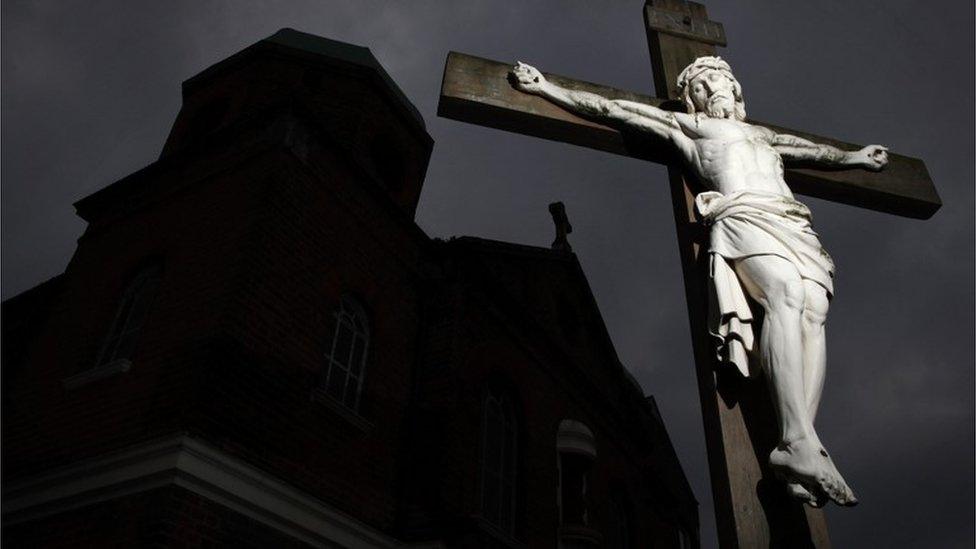'Strong case' house in crypt was home to Jesus, says archaeologist
- Published

The doorway to the house was carved out of the rock in a natural cave
There is a "strong case to be made" that a house excavated in Nazareth, Israel, was the childhood home of Jesus, according to an archaeologist.
Professor Ken Dark, from the University of Reading, has spent 14 years studying the remains of the 1st century dwelling beneath a modern-day convent.
He said the ruins were first suggested as Jesus, Mary and Joseph's home in the 19th-century.
However, the idea was dismissed by archaeologists in the 1930s.
The site remained largely forgotten since then until Prof Dark launched a project in 2006 to reinvestigate the site.
He said: "I didn't go to Nazareth to find the house of Jesus, I was actually doing a study of the city's history as a Byzantine Christian pilgrimage centre.
"Nobody could have been more surprised than me."
'As close as we'll get'
He said the ancient dwelling was located beneath a Byzantine-era church, which in turn lies beneath the Sisters of Nazareth Convent.
He explained: "We know from written evidence this church was believed in the Byzantine period to have been built on the site of Jesus' home and the dwelling preserved in its crypt.
"It's almost certainly the Church of the Nutrition, which was dedicated to the upbringing of Christ, and mentioned in a 7th Century pilgrim's account."
Prof Dark said his work has identified the house as dating back to the 1st Century and reveals the building was carved into a rocky hillside.
He said whoever built the house had excellent knowledge of stone-working, the sort of thing expected of someone who would have been called a tekton, the ancient word for craftsman that was used to refer to Joseph in the bible.
The archaeologist said while all these factors do not prove it was Jesus' home, "this is about as close as we will probably ever get to being able to say it was".
- Published28 December 2019

- Published24 December 2015

- Published31 October 2015
